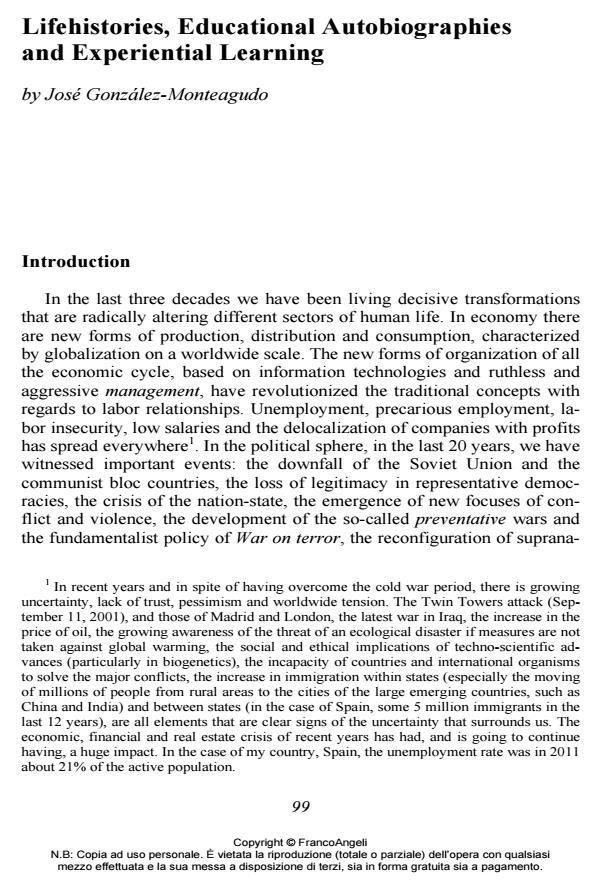Lifehistories, Educational Autobiographies and Experiential Learning
Journal title EDUCATIONAL REFLECTIVE PRACTICES
Author/s José Gonzàlez-Monteagudo
Publishing Year 2012 Issue 2012/1 Language Italian
Pages 19 P. 99-117 File size 416 KB
DOI 10.3280/ERP2012-001007
DOI is like a bar code for intellectual property: to have more infomation
click here
Below, you can see the article first page
If you want to buy this article in PDF format, you can do it, following the instructions to buy download credits

FrancoAngeli is member of Publishers International Linking Association, Inc (PILA), a not-for-profit association which run the CrossRef service enabling links to and from online scholarly content.
This paper explores contributions from autobiographical approaches to promote experiential and reflective learning. After a presentation on the development and current debates regarding Life History methodologies, I will present my proposal of educational autobiography, a tool rooted from the paradigm Histoires de vie en formation. Subsequently I will focus on genealogical trees as a process to enhance critique, reflection, and sociocultural analysis on history, society, culture, the family and learning. Life histories are useful for the creation of motivating learning processes, centered on the lives of students and favoring an integrating education of cognitive, emotional, and social dimensions.
- Transitions et transformations des étudiants internationaux en contextes de mobilité académique José González-Monteagudo, in Pensée plurielle /2016 pp.111
DOI: 10.3917/pp.041.0111 - A qualitative study on the unresolved problem of female genital mutilations, socio-cultural reasons, and policy issues in the Afar regions of Ethiopia Habtamu Wondimu, Girum Melkamu, Kassahun Dejene, in Cogent Public Health 2205706/2023
DOI: 10.1080/27707571.2023.2205706
José Gonzàlez-Monteagudo, Lifehistories, Educational Autobiographies and Experiential Learning in "EDUCATIONAL REFLECTIVE PRACTICES" 1/2012, pp 99-117, DOI: 10.3280/ERP2012-001007